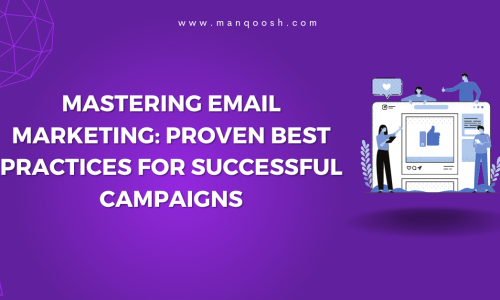NVIDIA’s new AI model quickly generates objects and characters for virtual worlds
- digitalmanqoosh
- July 13, 2023
- Uncategorized
- 0 Comments
NVIDIA AI Workbench Speeds Adoption of Custom Generative AI for Worlds Enterprises
These teams are expected to see a productivity lift from generative AI of more than $950 billion, according to a McKinsey report. When building manufacturing facilities, planning in simulation before launching into production helps to reduce costly change orders that can shut down factory lines. Normally, the work that goes into setting up environments, connecting services, downloading resources, configuring containers, and so on is done on a remote resource. With AI Workbench, we only have to clone a project from GitHub and click Start JupyterLab.
- BioBERT is a pretrained language model designed for biomedical text mining and natural language processing tasks.
- These generative models are pretrained for efficient enterprise application development.
- We’ve been optimizing every part of our hardware and software architecture for many years for AI, including fourth-generation Tensor Cores — dedicated AI hardware on RTX GPUs.
- Just like a resume provides a snapshot of a candidate’s skills and experience, model credentials do the same for a model.
- Synthetic data created in the metaverse is further accelerating the training of cutting edge AI applications by allowing AI to be trained on more data than was previously possible.
- Getty Images—the world’s foremost visual experts—aims to customize text-to-image and text-to-video foundation models to spawn stunning visuals using fully licensed content.
NVIDIA pretrained AI models are a collection of 600+ highly accurate models built by NVIDIA researchers and engineers using representative public and proprietary datasets for domain-specific tasks. The models enable developers to build AI applications efficiently and expeditiously.These models are optimized for GPUs, cloud, embedded, and edge, delivering high performance for preferred production environments. This is a transformer-based language model that leverages a novel ELECTRA pretraining method to achieve state-of-the-art performance on a range of natural language processing tasks. Smaller model size and faster training time than comparable models make it ideal for a range of applications, including chatbots, virtual assistants, and more. To create new AI applications, developers can now access a complete RTX-accelerated AI development stack running on Windows 11, making it easier to develop, train and deploy advanced AI models.
Tata Partners With NVIDIA to Build Large-Scale AI Infrastructure
Fully licensed Shutterstock assets and metadata will be used for training, and Shutterstock will compensate artists via its Contributor Fund. Generative AI leverages AI and machine learning algorithms to enable machines to generate artificial content such as text, images, audio and video content based on its training data. As you can see above most Big Tech firms are either building their own generative AI solutions or investing in companies building large language models. For enterprises running their business on AI, NVIDIA AI Enterprise provides a production-grade, secure, end-to-end software platform for development and deployment. It includes over 100+ frameworks, pretrained models, and open-source development tools, such as NeMo, Triton™, TensorRT™ as well as generative AI reference applications and enterprise support to streamline adoption. NVIDIA Train, Adapt, and Optimize (TAO) is an AI-model-adaptation platform that simplifies and accelerates the creation of production-ready models for AI applications.
Quantiphi, an AI-first digital engineering company and one of NVIDIA’s service delivery partners, is working with NeMo to build a modular generative AI solution. The offering, called baioniq, will enable enterprises to build customized LLMs that are equipped with up-to-date information to boost productivity for knowledge workers. Just like a resume provides a snapshot of a candidate’s skills and experience, model credentials do the same for a model. Many pretrained models include critical parameters such as batch size, training epochs, and accuracy, providing you with the necessary transparency and confidence to pick the right model for your use case. With production-ready, AI pretrained models from the NGC™ catalog, With production-ready, AI pretrained models from the.
Reallusion is Releasing Character Creator Connector for NVIDIA Omniverse
Text Generation involves using machine learning models to generate new text based on patterns learned from existing text data. The models used for text generation can be Markov Chains, Recurrent Neural Networks (RNNs), and more recently, Transformers, which have revolutionized the field due to their extended attention span. Text generation has numerous applications in the realm of natural language processing, chatbots, and content creation. NVIDIA AI Enterprise 4.0 now includes NVIDIA NeMo, an end-to-end, cloud-native framework for data curation at scale, accelerated training and customization of large language models (LLMs), and optimized inference on user-preferred platforms. From cloud to desktop workstations, NVIDIA NeMo provides easy-to-use recipes and optimized performance with accelerated infrastructure, greatly reducing time to solution and increasing ROI. NVIDIA AI Workbench is a unified, easy-to-use developer toolkit to create, test, and customize pretrained AI models on a PC or workstation.
This is in contrast to most other AI techniques where the AI model attempts to solve a problem which has a single answer (e.g. a classification or prediction problem). And on Sept. 8, Nvidia joined forces with Tata Group and Reliance Industries to bring advanced AI capabilities to India’s fast-growing economy. “Data centers worldwide are shifting to GPU [graphics processing unit] computing to build energy-efficient infrastructure to support the exponential demand for generative AI.” We have seen this distribution strategy pay off in other market categories, like consumer/social. They are large and difficult to run (requiring GPU orchestration), not broadly accessible (unavailable or closed beta only), and expensive to use as a cloud service. Despite these limitations, the earliest Generative AI applications begin to enter the fray.
Yakov Livshits
Founder of the DevEducation project
A prolific businessman and investor, and the founder of several large companies in Israel, the USA and the UAE, Yakov’s corporation comprises over 2,000 employees all over the world. He graduated from the University of Oxford in the UK and Technion in Israel, before moving on to study complex systems science at NECSI in the USA. Yakov has a Masters in Software Development.
As an evolving space, generative models are still considered to be in their early stages, giving them space for growth in the following areas. Generative AI is a powerful tool for streamlining the workflow of creatives, engineers, researchers, scientists, and more. Our self-paced courses and instructor-led workshops are developed and taught by NVIDIA experts and cover advanced software development techniques, Yakov Livshits leading frameworks and SDKs, and GPU development. Organizations can focus on harnessing the game-changing insights of AI, instead of maintaining and tuning their AI development platform. Our goal is to provide you with everything you need to explore and understand generative AI, from comprehensive online courses to weekly newsletters that keep you up to date with the latest developments.
All while providing seamless collaboration and deployment capabilities across machines and environments. The process can become incredibly complex and time consuming, especially when trying to collaborate and deploy across multiple environments and platforms. NVIDIA AI Workbench helps simplify the process by providing a single platform for managing data, models, resources, and compute needs. This enables seamless collaboration and deployment for developers to develop cost-effective scalable generative AI models quickly. For example, researchers at the University of Florida have access to one of the world’s fastest supercomputers in academia. They’ve used it to develop GatorTron — a natural language processing model that enables computers to read and interpret medical language in clinical notes that are stored in electronic health records.
Get Started Building Generative AI Applications
With NVIDIA AI Workbench, developers can customize and run generative AI in just a few clicks. It allows them to pull together all necessary enterprise-grade models, frameworks, software development kits and libraries from open-source repositories and the NVIDIA AI Yakov Livshits platform into a unified developer toolkit. A preeminent global visual content creator and marketplace, Getty Images is working in collaboration with NVIDIA to provide custom developed image and video generation models on Picasso, trained on fully licensed data.
The Bull Market in Artificial Intelligence (AI) Is Just Getting Started: 3 … – The Motley Fool
The Bull Market in Artificial Intelligence (AI) Is Just Getting Started: 3 ….
Posted: Mon, 18 Sep 2023 09:12:00 GMT [source]
By fine-tuning pretrained models with custom data, developers can produce highly accurate computer vision and language understanding models in hours rather than months. NVIDIA NeMo™ is an open-source framework for developers to build and train state-of-the-art conversational AI models. NVIDIA Picasso is a foundry for custom generative AI for visual design, providing a state-of-the-art Yakov Livshits model architecture to build, customize and deploy foundation models with ease. Enterprise developers, software creators, and service providers can choose to train, fine-tune, optimize, and infer foundation models for image, video, 3D and 360 HDRi to meet their visual design needs. Picasso streamlines foundation model training, optimization, and inference on NVIDIA DGX Cloud.
Developing Smart City Traffic Management Systems with OpenUSD and Synthetic Data
Generative AI (GenAI) is a type of Artificial Intelligence that can create a wide variety of data, such as images, videos, audio, text, and 3D models. It does this by learning patterns from existing data, then using this knowledge to generate new and unique outputs. GenAI is capable of producing highly realistic and complex content that mimics human creativity, making it a valuable tool for many industries such as gaming, entertainment, and product design. Recent breakthroughs in the field, such as GPT (Generative Pre-trained Transformer) and Midjourney, have significantly advanced the capabilities of GenAI.
The idea behind Bi3D is that it is faster and easier to classify an object as being closer or farther than a certain distance, rather than to regress its actual distance accurately. This is an ideal model for building collision avoidance applications, similar to those used in current industrial autonomous mobile robot (AMR) systems. Just as AI is crucial to the expansion of the metaverse, so too is the metaverse to the expansion of AI.








